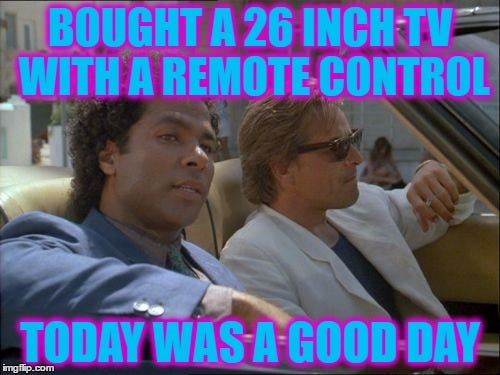You may well have come across this idea of the hedonic treadmill, or hedonic adaptation. It essentially means how quickly we adapt to changing stimulus. We all have this emotional baseline. It’s like a consistent level of happiness that we gravitate back to once something good has happened.
Say someone wins the lottery. When they find out that they’ve got a few million winging it’s way into their bank account, they might dance around the room and spend way too much money on boats. Give it time, though, and that sense of elevation will eventually fall back to the baseline.
Their happiness does not last.
This is the same for most scenarios. Got a new job, woohoo, then back to baseline. New romantic partner. Boom boom, then back to baseline. Shiny new Porsche. Vroom vroom. Back to baseline.
I’m gonna use that Porsche to step through the process of hedonic adaptation. You buy it because you think it’s going to bring you pleasure. We call this stage hedonic consumption.
Now you’re driving around in it. You’ve rolled the sleeves up on your jacket and are blasting Jan Hammer out of the speakers at full volume. You’re loving it. That’s hedonic value.
After a while, though, you kind of get used to it. That sense of elation fades away and the joy that you got from driving it before just isn’t there anymore. That’s hedonic adaptation. Back to baseline.
The issue arises once we’ve settled into the state of hedonic adaptation. The pleasure in the item or activity isn’t there anymore, so we go looking for the next one. Much like a junkie looking for their next fix. We need another shot of pleasure in the arm to give us that dopamine kick.
Pleasure can lift your mood and leave you feeling awesome, but it’s effect is fleeting and transitory. An ethereal mist that quickly dissipates.
You can’t escape the hedonic treadmill - it’s a natural state of being for most of us. What you can do is work on becoming aware of it and changing your perspective. As always, self awareness is at the core of any of these sorts of activities that we engage in where we’re trying to change ourselves.
If you don’t know what you need to change, then good fucking luck trying to change it.
Reducing hedonic adaptation
Here are a couple of things you can try to slow down the impact of the hedonic dreadmill.
Create meaning. You’ve got to engage in activities that have some sort of value to you. It could be enrolling on a course to learn a new skill. Volunteering your time at a local community centre or charity. There has to be more to your life than get up, go to work, eat, shit, sleep. If there’s not, then those hedonic pleasures are going loom up at you hard and fast because they’ll seem like the only means of attaining any sort of joy.
Get grateful. This one comes up a lot when we talk about having a positive mindset, and it works. Gratitude alters our perspective, making us aware of what we do have in our life that is good. It’s easy to skim over these when we’re trapped in that hedonic loop because we’re wired to quickly disregard them when the pleasure fades.
Do shit for other people. This feeds back into meaning, but I want to keep it as a separate point. When we do something for another without the expectation of something in return - what I like to call non-contractual relationships - we’re acting selflessly. Hedonic adaptation is an inherently selfish endeavour. What pleasure can I gain from this? We’re switching the locus of our motivation to the opposite end of the spectrum, which helps to foster a more altruistic and compassionate perspective.
Bonne chance, and if you can think of anything else to add to that list of how to reduce it, drop it in the comments. I want to hear it!
Much love
David



